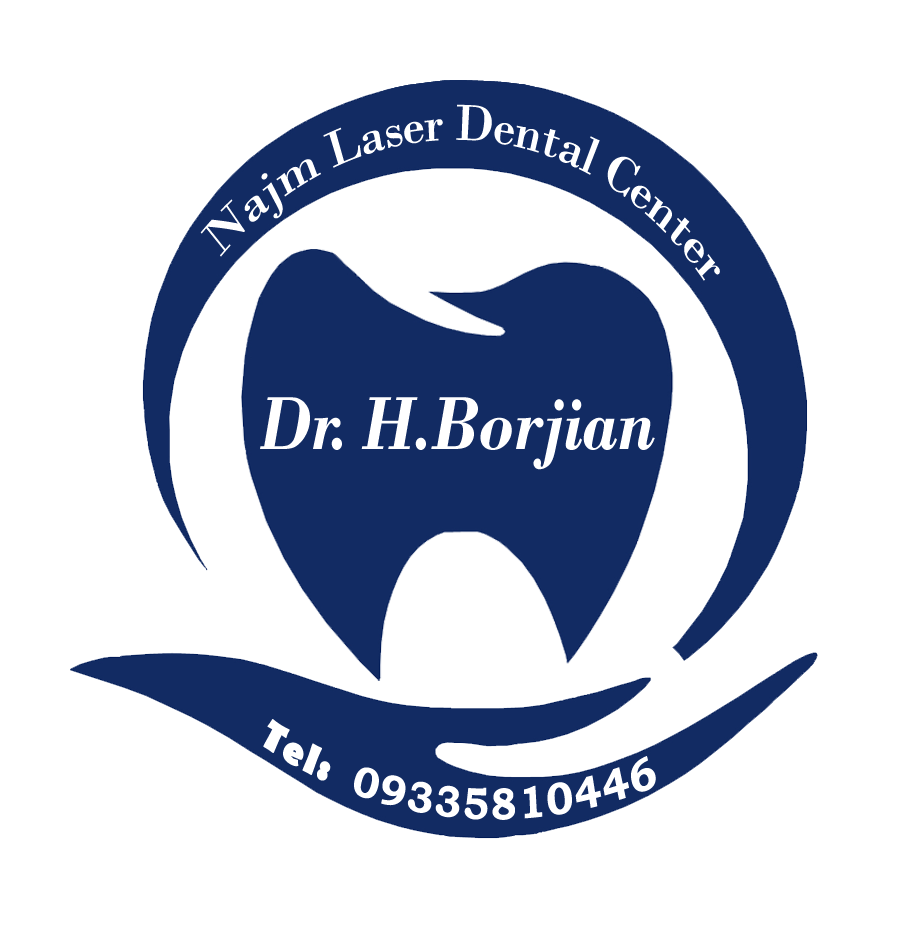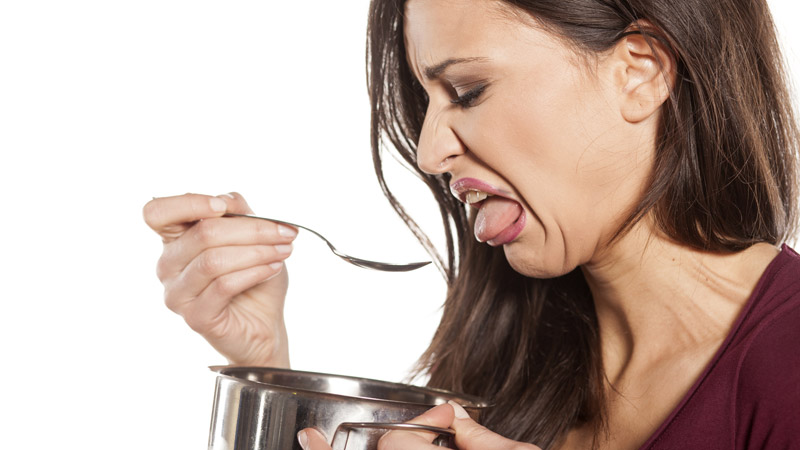Investigating the main causes of bad taste in the mouth
The definition of bad taste in the mouth is different for different people. For some people, bad taste in the mouth is a metallic taste in the mouth. You may even notice a loss of taste during meals. In this article from Dr. Hossein Borjian's website The best gum surgeon in Isfahan We examine the main causes of bad taste in the mouth.
dry mouth
Dry mouth occurs when your salivary glands do not produce enough saliva. This situation can cause a feeling of dryness and stickiness inside your mouth. Saliva reduces the growth of bacteria in the mouth and removes food particles. As a result of lack of saliva, you may have a bad taste in your mouth due to excess bacteria and leftover food.. Various factors can cause dry mouth, including:
- diabetes
- age increasing
- nerve damage
- Use of tobacco
- Having any autoimmune diseases
- Nasal congestion that causes mouth breathing.
- Non-prescription drugs (OTC) and prescription
If you have dry mouth, consult your doctor to determine the root cause. People with dry mouth can relieve their symptoms through lifestyle changes, prescribed medications, and OTC or prescription mouthwashes..
Poor hygiene and dental problems
The most common causes of bad taste in your mouth Oral Health related to. Not using dental floss and regular brushing can cause gum inflammation and bad taste in the mouth. Dental problems such as infection, abscess and even wisdom teeth can also cause bad taste. Other symptoms of dental diseases include::
- Bad Breath
- Tooth sensitivity
- Loose teeth
- Bleeding, red or swollen gums
You can prevent most common dental problems by brushing and flossing your teeth regularly. It is also important to see your dentist regularly for cleanings and checkups. You can also add antibacterial mouthwash to your dental routine for added protection.
oral thrush – The main causes of bad taste in the mouth
Thrush is a type of fungal infection that grows in warm and moist areas, including your mouth. Anyone can get oral thrush, but babies, the elderly, and people with suppressed immune systems are more likely to get it.. Oral thrush can also cause the following symptoms:
- Difficulty swallowing
- dry mouth
- White bumps
- Redness, burning or pain
Regular use of dental floss, brushing and rinsing the mouth can prevent oral thrush. Also, try to limit the consumption of sugar because yeast feeds on it. If you have white spots in your mouth, even if you have no other symptoms, call your doctor.
Respiratory infections
Respiratory system infections, especially viral infections, can affect the taste in your mouth. Tonsillitis, sinusitis, colds and middle ear infections often affect your sense of taste and smell.. Other symptoms of infection in the respiratory system include::
- Earache
- Sore throat
Viral infections usually go away on their own within one to two weeks. After the infection clears, the bad taste should go away.
hepatitis
Hepatitis B is a viral infection of the liver. One of its early symptoms is a bitter taste in the mouth. Other early symptoms of hepatitis B include::
- Bad Breath
- Loss of appetite
- Low grade fever
- Nausea, vomiting and diarrhea
Hepatitis B is a serious infection. If you have symptoms or think you have been exposed to the virus, call your doctor. In addition to a bad taste in your mouth, hepatitis C medications can also affect your sense of smell. After the medicine is finished, the bad taste in the mouth should disappear.

Hormonal changes
Hormonal fluctuations in early pregnancy can cause many sensory changes. You may crave foods you've never wanted before or develop a sudden aversion to certain smells. Many women also report a bad taste, usually metallic, in their mouth during the first trimester. Although the taste may be unpleasant, it is usually harmless and disappears after pregnancy.
Menopause
Menopausal women often report having a bitter taste in their mouths. This is usually due to dry mouth, which is a common symptom of menopause. Another possible cause of bitter taste in the mouth during menopause is burning mouth syndrome. This is a rare condition, but the risk increases after menopause due to low estrogen levels. In addition to a bitter taste in your mouth, you may also feel a burning sensation, especially near the tip of your tongue. These symptoms may occur occasionally. If you are in or near menopause and have a bad taste in your mouth, talk to your doctor about possible treatment options.. For some women, hormone replacement therapy can be helpful and effective.
reflux – The main causes of bad taste in the mouth
Bile and acid reflux have similar symptoms and can occur at the same time. They are caused by bile, a fluid made in the liver that helps digest food, or stomach acid moving up through your esophagus.. Both can cause a sour taste in the mouth and other symptoms, including::
- heartburn
- Upper abdominal pain
- nausea and vomiting
- Cough and hoarseness
If you have frequent symptoms of bile reflux or stomach acid, see your doctor. There are a variety of OTC and prescription medications that can be effective. Acid reflux can sometimes turn into a chronic disease called gastroesophageal reflux disease. Home care tips include avoiding foods that cause heartburn, eating smaller meals, and maintaining a healthy weight..
Vitamins and nutritional supplements
Many vitamins and supplements can cause a metallic taste in your mouth, especially if you take them in large amounts.. Some of the most common vitamins and supplements that can cause a metallic taste include::
- Calcium
- Chrome
- ms metal
- iron
- Vitamin D
- Zinc, which can also cause nausea.
- Multivitamins or prenatal vitamins that contain heavy metals.
Nervous conditions
Your taste buds are connected to the nerves in your brain. Anything that affects these nerves can cause a bad taste in your mouth. Conditions that may affect the nerves in your brain include::
- epilepsy
- The demise of a mind
- hit on head
- Brain tumors
Some drugs used to treat these neurological diseases can also cause a bad taste in the mouth. This usually disappears after treatment of the underlying disease.
The Instagram page of Dr. Hossein Borjian, the best gum surgeon in Isfahan
medicines
Many OTC and prescription medications can also cause a bitter or metallic taste in the mouth. OTC medications which can affect your sense of taste, are:
- Anti-inflammatories
- Antihistamines
Prescription drugs that can cause an unusual taste in your mouth include::
- Heart medications
- Diabetes medications
- Antispasmodic agents
- antibiotics
- Antidepressants
- Cancer treatments
- HIV protease inhibitors
- Oral contraceptives
Many chemotherapy drugs are used to treat cancer. Chemotherapy treatment usually involves a combination of these, and many of them can cause a metallic or sour taste.. Radiation therapy can also cause a metallic taste, especially when it is used to treat head and neck cancer.. Any unusual taste caused by chemotherapy or radiation therapy usually goes away after the treatment is over..
Attention :
- The scientific accuracy of the above article should be consulted with Dr. Borjian, a specialist, in person Gum and bone grafting be confirmed.
- This article was managed and published by the site admin.
Read more :
Reasons for toothache after nerve extraction
Appropriate antibiotics for dental infections



